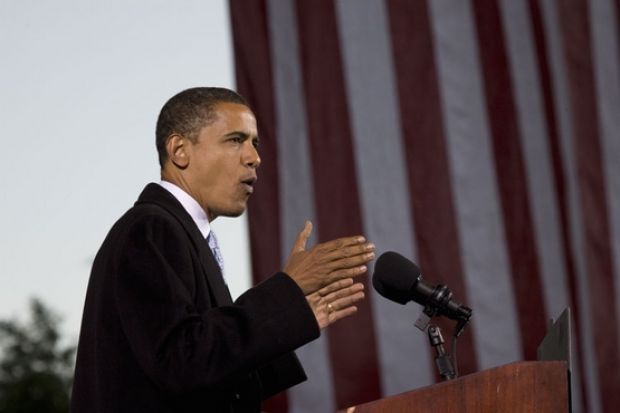Source: Spirit of America / Shutterstock.com
President Barack Obama has vowed to protect scientific research from “political manoeuvres” in the wake of continuing attempts by Republican congressmen to restrict National Science Foundation funding for social science.
Last week, the journal Science’s Science Insider website reported that the chair of the House of Representatives’ Committee on Science, Texas Republican Lamar Smith, had drafted legislation requiring the NSF to certify that every grant it awards advances health, prosperity, welfare or national defence.
The draft, known as the High Quality Research Act, would also require funded research to be “groundbreaking” and to answer questions “that are of utmost importance to society at large”.
Critics see this as the latest Republican attack on public funding for social science research.
In February, House majority leader Eric Cantor said that public funds for social science “would be better spent helping find cures to diseases”. This was followed by Oklahoma Republican senator Tom Coburn’s successful introduction into a March spending bill of a temporary prohibition on NSF funding for political science research unless it promotes US national security or “economic interests”.
But during a speech at the National Academy of Sciences on 29 April, Mr Obama pledged to protect “our rigorous peer-review system” and to ensure that scientific research - in which he explicitly included social science - “does not fall victim to political manoeuvres or agendas” that could damage “the integrity of the scientific process”.
However, he added that it was important that “we only fund proposals that promise the biggest bang for taxpayer dollars”.
The top Democrat on the House science committee, Eddie Bernice Johnson, has condemned Mr Smith for writing a letter to Cora Marrett, acting director of the NSF, demanding explanations for why five recent social science proposals were funded.
She said that the intervention was “the first step on a path that would destroy the merit-based review process at NSF” and brought to bear “political pressure [on] what is widely viewed as the most effective and creative process for awarding research funds in the world”.
Register to continue
Why register?
- Registration is free and only takes a moment
- Once registered, you can read 3 articles a month
- Sign up for our newsletter
Subscribe
Or subscribe for unlimited access to:
- Unlimited access to news, views, insights & reviews
- Digital editions
- Digital access to THE’s university and college rankings analysis
Already registered or a current subscriber? Login




